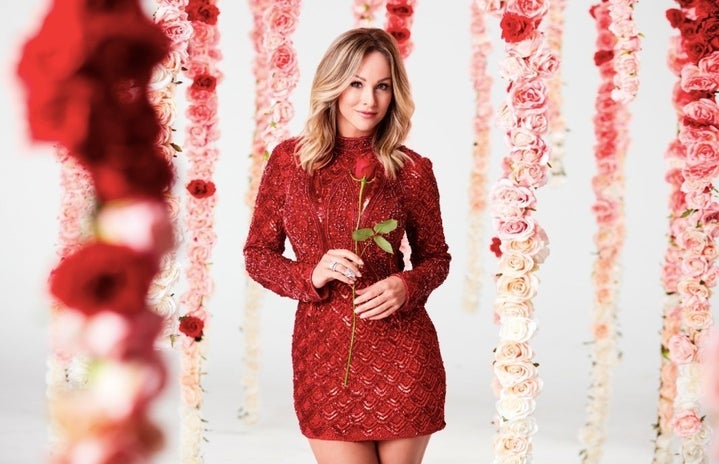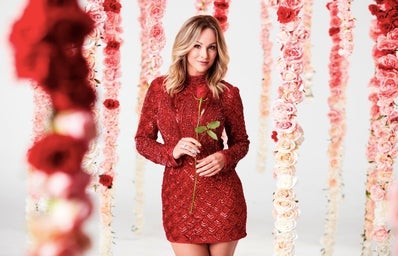There are a lot of ways in which The Bachelor franchise is akin to preschool. There are aides to help keep everyone in line, closely monitored group activities, plenty of whining, and no absolutely no cell phones allowed. But the most notable similarity is the ever-present obsession with what is fair.
Just as children seem to have a deeply ingrained sense of fairness, the contestants on The Bachelor and The Bachelorette have an enduring preoccupation with the rules — written or otherwise. They watch one another like hawks during cocktail parties, ready to tattle to the group on anyone who speaks to the lead twice before everyone has gotten their turn. They complain when their gifts are hijacked, and have full-on meltdowns if someone sneaks off to see the lead during non-sanctioned date time.
There was a lot of fairness-angst going down in episode three of Clare Crawley’s season as it dawned on her suitors that Dale Moss wasn’t just the front-runner — he was the only one in the race. The rule-centric chafing may have begun familiarly enough – pitting contestant against contestant – but the men’s collective ire was gradually redirected as the week wore on. By the episode’s end, it pointed squarely at Clare herself.
Which begs the questions, does The Bachelorette have to be fair?
Dale-force winds blew away the norm
Things were off to a rocky start before this season even really had the chance to begin, as Clare canceled her first group date and skipped straight to the post-date cocktail party. Naturally, this led to some griping about losing “valuable time” that the date’s would-be participants felt they were owed, but all might well have been forgiven if “cocktail party” hadn’t turned out to be code for “hour-long makeout session with Dale.” After 60 minutes spent sitting stiffly by the pool with his fellow rejects, Eazy finally worked up the courage to interrupt the lovefest and (politely) demand his allotment of Clare time. Clare seemed slightly less invested in the idea.
Later, Dale even had the audacity to interrupt another man’s one-on-one time, for which he was roundly chastised by the rest of the group. Even then, his instinct to claim that he had no intention of breaking the unspoken code of conduct was clear as he clumsily claimed he got “lost” on the way back from the bathroom and wandered through the wrong door. No one was buying it, and their head-shaking said it all: Not. Fair.
Luckily for the second group date’s participants, Dale wasn’t involved – or so they thought. Not long after meeting comedy legend Margaret Cho and being asked to perform roasts, who swaggers in but Dale himself? He was promptly ripped to shreds by his (surprisingly funny) opponents.
That night at the second group date cocktail party, Clare spent her time interrogating the roasters for the things they said about Dale, treating each man less like a potential mate and more like a friend she’s overheard badmouthing her new man. In the end, she awarded the group date rose to no one, and at this point, the men’s unfairness sensors were going haywire. How on earth had Dale managed to worm his way into monopolizing not one, but two group dates? But their attention quickly moved away from Dale as it occurred to them that this time, it wasn’t the typical overzealous frontrunner who was guilty of breaking the rules: it was the bachelorette herself.
But what’s the objective of ‘The Bachelorette?’
Clare’s unwillingness to at least feign interest in the men of her season brings to light a fundamental tension for the franchise that’s usually content to lurk beneath the surface: Is The Bachelorette a gameshow or a match-making exercise? Is the goal to play the game through to the end or to find the love of your life? Because it can rarely be both.
If it’s a gameshow, then standard rules must apply. Whether you’re on Jeopardy! or the Great British Baking Show, what you want is only as important as what you can accomplish within the parameters provided. Like any other competition reality show, the parties involved in The Bachelorette go in understanding the rules, however stringent and bizarre they may be, and agreeing to operate within them. Most of Clare’s suitors, especially this early in the season, can hardly be expected to think of the whole experience as anything more than that: a series of levels they must complete in order to be the last one standing, and win it all.
But the premise of The Bachelorette makes things a bit more complicated. After all, the objective isn’t a trophy or a check; it’s a lifetime commitment with your true love. Theoretically, at least. And isn’t all fair in love and war? If Clare, (who, if you haven’t heard, is 39 entire years old) thinks Dale’s “the one,” does she really have to string the others along? She certainly doesn’t think so. “I’m trying to find my husband,” she reminded us in a confessional. Her tone was clear: she’s going to do whatever it takes to get what she wants, protocol be damned.
And what about us?
So we’re left at a stalemate, with the men (minus Dale) on team gameshow, and Clare on team love quest. But there’s one more participant in the fairness love triangle we’ve yet to consider: the viewers. What’s fair to us?
Like it or not, we’re part of the bargain, too. By tuning in, we keep the luxury accommodations booked and the champagne flowing. We provide enough Instagram followers for the fan favorites to quit their hairdressing jobs and turn to selling Fab Fit Fun boxes and blogging about their fitness routines for a living.
But we don’t do it for free.
If we’d managed to convince ourselves that what we root for above all else is love, this season has put that theory to the test. Clare’s unwillingness to play by the rules; her insistance on dating Dale exclusively rather than dating all of the men has proven that, at our core, we don’t tune in for a love story. We tune in for a game show; for the celebrity appearances and goofy dates; for the drama of fantasy suites and rose ceremonies; for the emotional story arcs; for “the most dramatic season ever.” Everlasting love is simply the prize, like a new Buick SUV in a round of Wheel of Fortune, that keeps the story moving toward its climax. And like a car or a pile of cash, the happily-ever-after doesn’t even have to last for us to feel everyone’s gotten their money’s worth.
So if the series is fair to the lead, they can do whatever feels appropriate to secure the love of their life. If it’s fair to the contestants, the lead will equally divide her time amongst them. And either way could be seen as fair to us, the viewers – whether we get the most dramatic season through an unforseen upset, or follow the lead to their engagement. Either way, we win, right?
What do you think? Is there such a thing as fairness on a show like The Bachelorette? Does love conquer all, even on TV?



